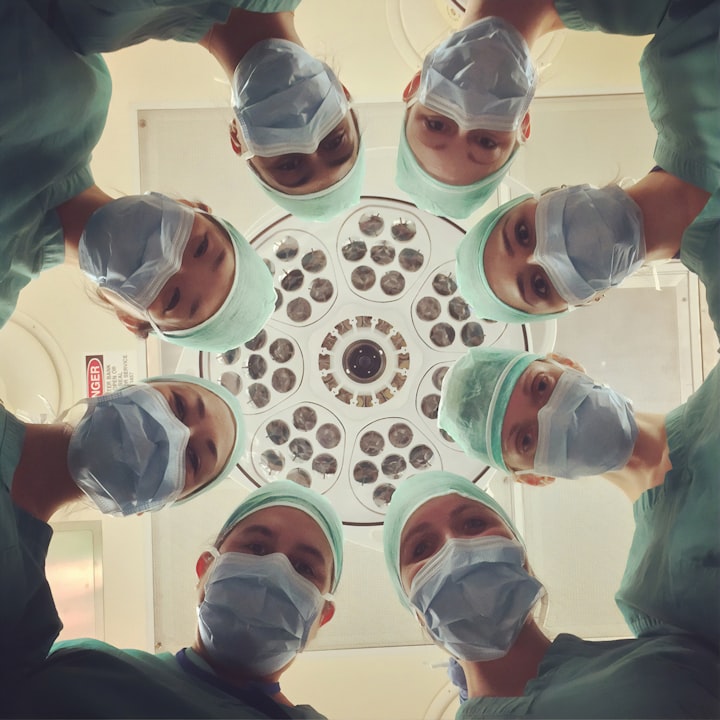Innovative Management of Chronic Bowel Conditions: The Pulsed Irrigation Evacuation (PIE) Device
Enhancing Bowel Health and Colonoscopy Experience with the Pulsed Irrigation Evacuation (PIE) Device

Chronic bowel conditions and fecal impaction can have severe consequences on patients' well-being and healthcare costs. Traditional treatments often fall short, necessitating the need for innovative solutions. This blog explores the effectiveness and versatility of the Pulsed Irrigation Evacuation (PIE) Device in managing chronic bowel conditions, treating fecal impaction, and preparing for colonoscopy procedures.
The Impact of Chronic Bowel Conditions and Fecal Impaction:
Chronic bowel conditions, such as severe constipation and fecal impaction, can significantly impact patients' quality of life and overall health. These conditions are especially prevalent among the elderly and individuals with neurogenic bowel disorders. The consequences of chronic bowel conditions extend beyond physical discomfort and can lead to life-threatening complications, including bowel obstruction, intestinal perforation, fecal incontinence, and urinary retention. Additionally, the financial burden of prolonged treatment and hospitalization adds to the overall healthcare costs.
Introducing the Pulsed Irrigation Evacuation (PIE) Device:
The Pulsed Irrigation Evacuation (PIE) Device is an innovative solution designed to provide relief for patients with chronic bowel conditions, recurrent fecal impactions, and severe constipation when traditional methods prove ineffective or intolerable. Developed in 1986, the PIE Device has been successfully used to manage various medical conditions, including spinal cord injuries, Parkinson's disease, multiple sclerosis, and spina bifida.
Clinical Studies Validate the PIE Device's Efficacy:
Numerous clinical studies have demonstrated the safety and efficacy of the Pulsed Irrigation Evacuation (PIE) Device in managing chronic bowel conditions, treating fecal impaction, and preparing for colonoscopy procedures. These studies highlight the device's ability to effectively address specific challenges:
Breakthrough in Fecal Impaction Treatment:
A study by Kokoszka et al. (1994) assessed whether PIE could prevent the need for disimpaction surgery in patients with massive fecal impaction. The results were promising, as the PIE procedure successfully broke up the fecal impaction, and no patient required hospitalization for impaction.
Effective Management of Neurogenic Bowel:
Puet et al. (1997) conducted a study demonstrating that PIE is a safe and effective way to manage neuropathic bowel in patients with spinal cord injuries. The study successfully performed 398 PIE procedures in both in-patient and out-patient settings.
Long-term Safety of PIE in Spinal Cord Injury Patients:
Gramlich and Puet (1998) conducted a study to evaluate the long-term safety of PIE in patients with spinal cord injuries. After an average of 6.7 years of using the PIE Device, pathology results showed no evidence of epithelial damage or abnormal inflammatory infiltrate. Furthermore, there were no cases of bowel injuries caused by the PIE device, indicating its safety profile.
PIE Device for Rectal Impaction in Children:
Gilger et al. (1994) assessed the safety, efficacy, and comfort of PIE in children with chronic constipation, encopresis, and rectal impaction. The study found that PIE is safe, effective, and comfortable for children, with 78 percent of procedures successfully removing at least 50 percent of the feces from the colon.
Promising Results for Colonoscopy Preparation:
Apart from managing chronic bowel conditions and treating fecal impaction, the PIE Device has shown promise as an alternative for colonoscopy preparation. Ayub et al. (2017) compared PIE with traditional colon preparations such as polyethylene glycol (PEG) and sodium phosphate. The study found that patients in the PIE group experienced the highest rates of good or excellent colonoscopy prep (91 percent) and the lowest rates of pain, cramps, nausea, or vomiting.In another study by Ayub et al. (2000), PIE was evaluated for colon cleansing prior to colonoscopy. All 20 patients in the study had acceptable or better colon cleansing, leading the authors to conclude that PIE could be used as a primary colon preparation method or for same-day cleansing in individuals with poor traditional preparation.Lyons et al. (2014) compared PIE with polyethylene glycol-electrolyte lavage solution (PGL) for bowel preparation in veterans with spinal cord injuries. The study revealed that PIE resulted in lower Ottawa scores and a higher percentage of acceptable outcomes, demonstrating its safety and effectiveness for bowel preparation in patients with spinal cord injury. Embracing the PIE Device for Improved Patient Outcomes:The versatility of the Pulsed Irrigation Evacuation (PIE) Device, combined with its positive results in clinical studies, make it a valuable tool for healthcare providers and patients alike. By incorporating the PIE Device into their treatment protocols, healthcare providers can enhance patient outcomes in the following ways:Comprehensive Management of Chronic Bowel Conditions:The PIE Device offers a novel approach for managing chronic bowel conditions, providing relief when traditional treatments fail or are not tolerated. By pulsing warm water into the colon under controlled volumes and limited pressure, the PIE Device effectively hydrates stool and stimulates peristaltic movement, leading to successful bowel evacuation.Effective Treatment of Fecal Impaction:Fecal impaction can pose serious health risks, but the PIE Device offers a non-invasive alternative to disimpaction surgery. Clinical studies have demonstrated the effectiveness of the PIE procedure in breaking up fecal impactions, thereby preventing the need for hospitalization in most cases.Enhanced Colonoscopy Preparation:Colonoscopy is a crucial procedure for detecting and preventing colorectal cancer. The PIE Device has shown promising results as an alternative to traditional colon preparations, providing better colon cleansing outcomes and higher patient satisfaction. This not only improves the accuracy and effectiveness of colonoscopy procedures but also enhances the overall experience for patients.Conclusion:The Pulsed Irrigation Evacuation (PIE) Device has proven to be a safe and effective solution for managing chronic bowel conditions, treating fecal impaction, and preparing for colonoscopy procedures. Clinical studies consistently validate its efficacy and highlight its versatility in addressing various medical conditions. By embracing the PIE Device, healthcare providers can significantly improve patient outcomes, reduce healthcare costs associated with prolonged treatments and complications, and enhance the overall quality of care for individuals suffering from chronic bowel conditions. The PIE Device stands as a valuable tool, bringing relief, comfort, and improved bowel health to patients in need.





Comments
There are no comments for this story
Be the first to respond and start the conversation.